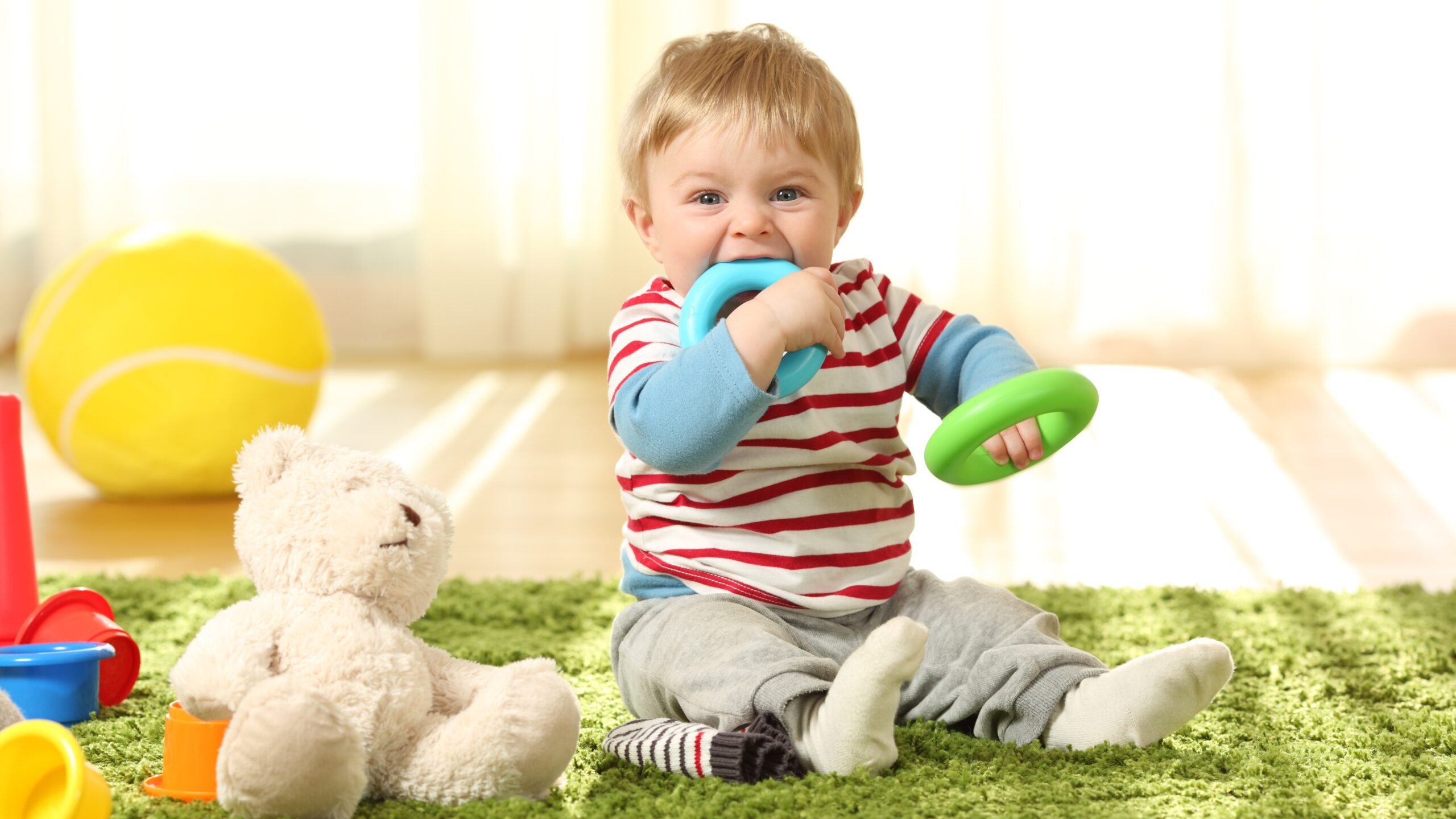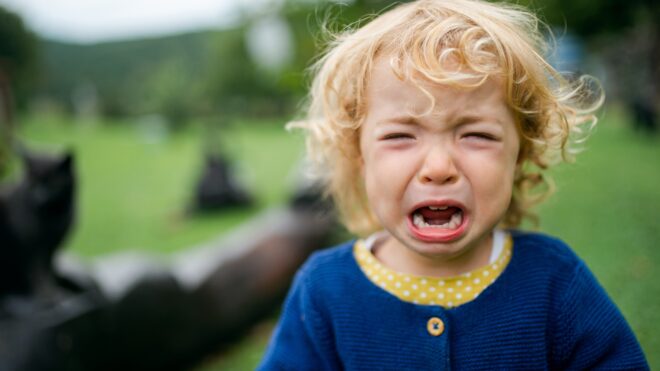
Toddlers can be such funny little creatures. Just when you think you have them figured out, they learn something new that feels right to them, and suddenly you’re in a whole new world.
Have you ever noticed that a lot of toddlers go through a phase where they feel like biting everything, including you? This may be a frustrating, embarrassing, or even distressing feeling, especially if they’re doing it to other children, but it’s actually fairly normal.
But even though your toddler is completely normal for going through this phase, it’s also important to try to nip it in the bud as soon as possible, because depending on how much they bite and the amount of force involved, it can become a dangerous habit for any child.
More from LittleThings: Spring Cleaning Guide: Are You Cleaning These Never-Cleaned Places In The Home?
To better understand why your toddler is behaving in this way, let’s dig into why toddlers bite.
They're teething.
If you think about physical child development and all of the many changes toddlers experience as they go through the infant-to-baby stage and into toddlerhood, you’ll likely recognize that your toddler may continue to teeth well into their second year of life.
According to Michigan State University, one of the most common reasons why toddlers bite is because they’re still teething and they may feel as though they need the oral stimulation to try to soothe their sore mouth for some relief.
Michigan State also notes that a biting toddler is most often trying to communicate an “unmet need,” so it’s vital to pay attention to their daily habits and what’s happening when they bite. If you happen to look into their mouth and see red, swollen gums or teeth starting to protrude, it may be time for some cold washcloths, frozen pops, or pain medication.
They may be trying to convey anger or frustration.
In the same way that a toddler might scream, cry, or stomp out of frustration, KidsHealth notes that while toddlers are learning to properly communicate using language and other expressive behaviors, there may be times when all of this starts to overwhelm them. For some toddlers, that is exactly the time when they bite.
Whether they’re trying to get your attention about something that’s happening in their world or they’re simply frustrated at their older sibling for being able to play with a certain toy, they may communicate this by biting.
When biting happens, it’s important to stand firm and immediately tell them that biting is no way to show how they’re feeling because it can hurt someone. Keeping things plain and simple is your best bet when addressing an action such as biting.
They may need more oral stimulation.
As we’ve said, toddlers are so fresh to the world and exploring it all for the first time that they often take comfort in putting items in their mouths and chewing on them to try to see what things feel like.
The Cleveland Clinic observes that children under the age of 2 may be in need of more oral stimulation, which causes them to bite. They may find that they enjoy how it feels, or they may find it comforting and it’s a simple way they can soothe themselves when they’re feeling anxious or unsettled.
This need for oral stimulation may also lead to biting because they simply have the urge and act from an emotional place that they can’t even verbalize quite yet. You can help them by giving them chewy and safe foods to munch on or even mouth-safe toys that may feel good when they chomp down.
They’re exploring boundaries.

If you know one thing about toddlers, it’s that they love to explore their boundaries, especially in the presence of their parents or caregiver.
The National Association for the Education of Young Children explains that another reason why toddlers bite is that they’re simply exploring the idea of cause and effect and want to see what happens to both themselves and the other person when they bite.
It’s suggested that you pay close attention to any signals or tells your child may give in terms of these behaviors so that you can prevent the biting from happening in the first place.
And it’s also equally important to find ways to help empower your child to explore the world safely and express themselves in constructive and kind ways rather than ways that could hurt someone.
They may be looking for your attention.
There are all sorts of ways that toddlers try to get their parents' attention on a daily basis, and some of them most certainly include behaviors that aren’t so cute.
According to Newsweek, toddlers may opt to bite family members or other children once they realize that they’ve caught your attention in a big way, even for something negative, so it can actually work to “unintentionally reinforce those behaviors.”
If you think this is the case, it’s vital to address your toddler biting someone and confirm to them that it’s not nice and physically hurts someone and causes them pain in the process.
It may be helpful, especially for attention-seeking toddlers, to offer the child or person that they’ve bitten some positive reinforcement for being brave and not biting them back. This may show your toddler that there are all sorts of ways to get your attention and they don’t have to bite for Mommy or Daddy to notice them.






